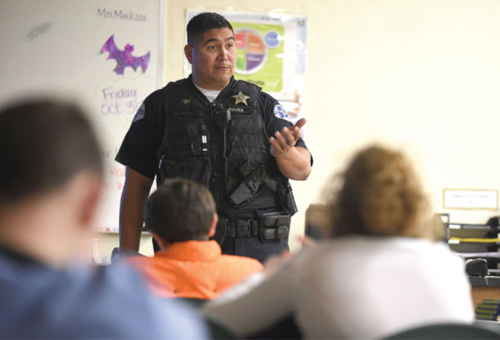


Avoid potential conflict both professionally and personally by learning to organize your thinking and respond calmly. Consider the approaches you can take to prevent and respond to verbal conflict. This course will explore the communication process, conflict prevention, to help you understand why conflicts occur. Instruction will also cover certain circumstances in which verbal de-escalation techniques may not be appropriate, and provide techniques to resolve such conflicts. Join us to learn how de-escalation techniques and communication skills can potentially defuse tense situations and lead to more successful outcomes. This training does not cover physical intervention techniques.

Gain insight and strategies to maximize how police agencies can connect with their community and important stakeholders through ongoing dialog and partnerships. Consider minority perceptions of policing due to historical events and ways to overcome some of these barriers. Discover strategies for creating a “learning organizational culture” while appreciating the fragile relationship with our communities. A focus will be on the importance of police legitimacy through ethics, empathy and equity.

Join other law enforcement and school personnel to address school violence and youth victimization concerns through the use of crime prevention and response strategies and review lessons learned from relevant case studies. Examine the impacts of trauma on youth and effective strategies for working with students experiencing mental illness and learning disabilities. Explore the most current trends among youth relating to social media and alcohol and substance abuse. Discuss successful prevention and intervention program models.

We are excited to share our final Compass edition of the 2025! Inside you'll find a look back at the year and what is to come in 2026. As we close out the year, we are grateful for the professionals, partners, and communities who made this year meaningful. Together, we strengthened skills, shared knowledge, and advanced public safety through collaboration and training. Thank you for being part of NCJTC’s mission. We look forward to continuing this important work with you in the year ahead.

We are excited to share our latest edition of the Compass Newsletter! November is National Native American Heritage Month and this issue highlights our relationships with American Indian/Alaska Indian (AI/AN) Communities at NCJTC. Learn about new training opportunities that just launched and much more!

We’re proud to share the NCJTC 2024 Annual Impact Report with you - a reflection of the critical work we’ve accomplished together. Read it today!

Read our NCJTC Impact Report for 2024 highlights and more!

NCJTC Training and Technical Assistance Catalog. For a printable version of the catalog, visit ncjtc.org/catalogprint. Revised: September 2025

NCJTC Training and Technical Assistance Catalog. For the online version of the catalog, visit ncjtc.org/catalog. Revised: September 2025

Celebrating Native American Heritage Month - 2025 resource
